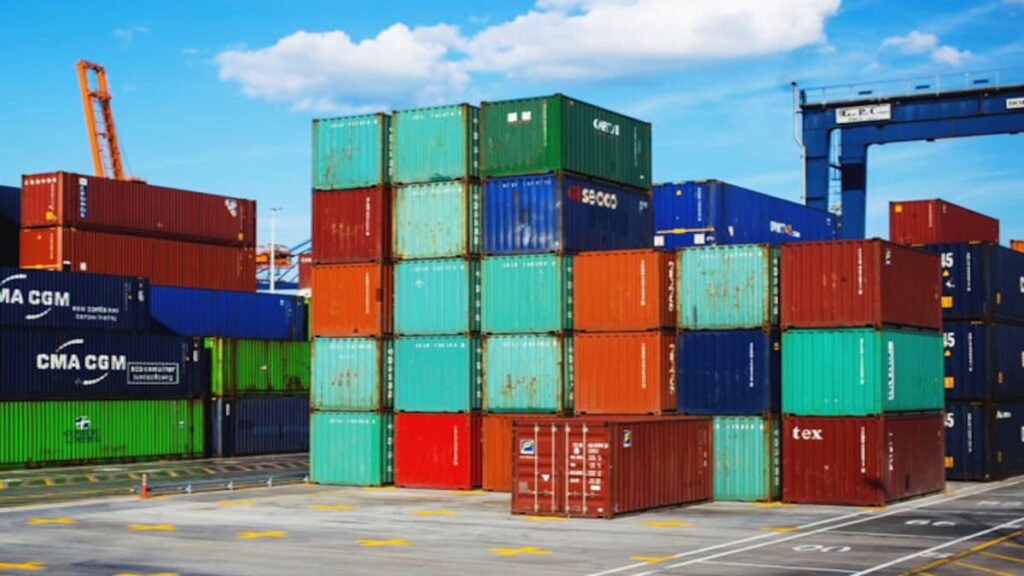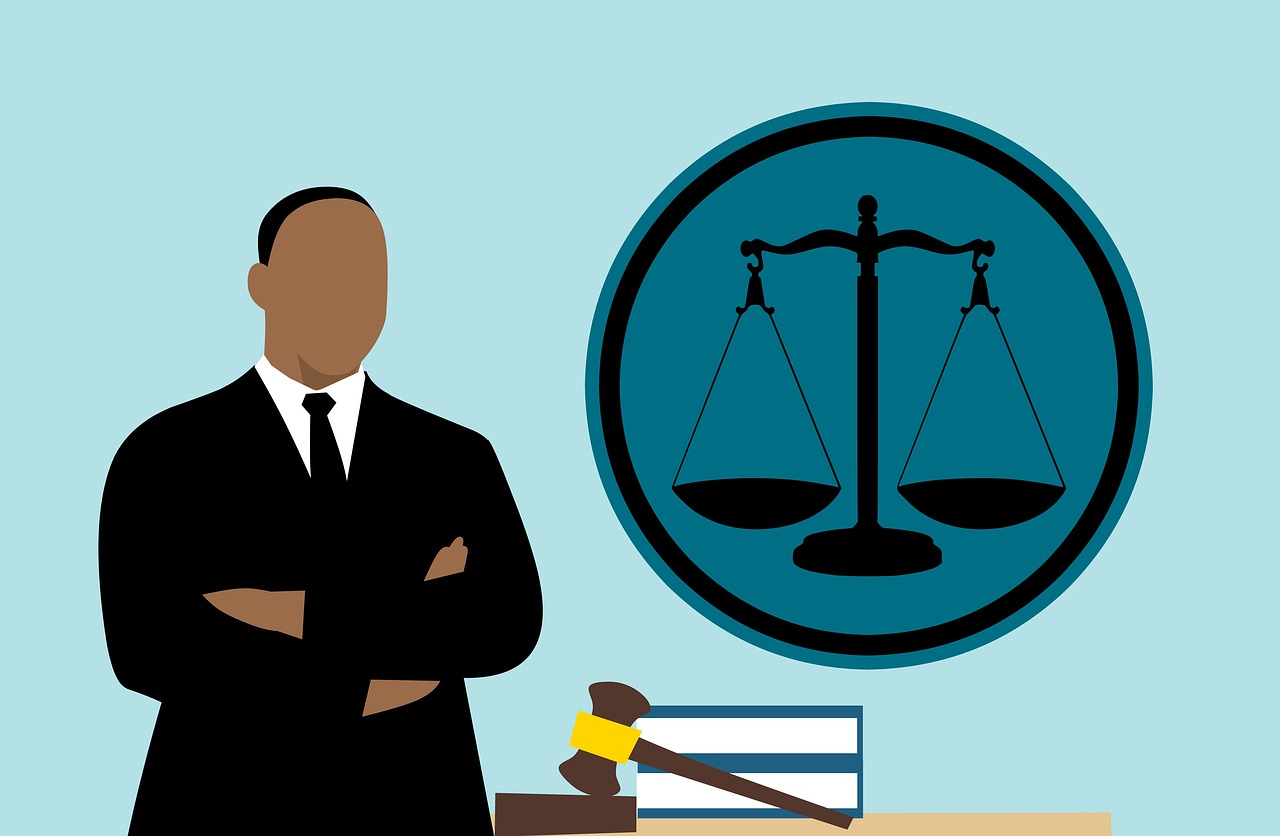World
3 Reasons International Trade is still resisting Blockchain, According to HadariOshri

Deep rooted culture creates barriers when it comes to modernizing the oldest industry in the world.
But just because technology is available, does not mean that it will be fully adopted. Take international trade for example. It would seem that blockchain would solve many of the legacy and manual processes in selling and shipping containers. To help us better explain why there is still resistance to this technology within international trade, we reached out to serial entrepreneur HadariOshri. With a background in buying and selling containers of fast fashion excess inventory, Hadari has pivoted to helping hospitals and other organizations source much-needed medical supplies and PPE from suppliers around the world.
Virtually sitting down with Hadari, I asked her some questions to better understand why there is still such resistance to adoption of blockchain technology. Hadari shares three factors that she says explains why.
- Cultural resistance
Hadari shared that part of the resistance to blockchain when it comes to import and exports is rooted in the culture of the shipping industry. “Sometimes the deals are closed just because the partners have been doing business together for many years,” she explained. “Many older players just don’t seem to be open to change.” She tries to talk with them about the benefits of blockchain, and how it can help support transactions by building trust. But most are not ready to listen, or simply stop the conversation saying that it’s just not going to happen.
The idea of digitization for some is a direct threat to the way that they have always done business. Some fear that it takes the personal elements out of the transactions. Hadari tries to explain how blockchain could help to build more trusted relationships through transparency.
“Digitalization is already happening in the industry, but mixed with older more traditional methods, the issue becomes how to ensure that the digitized data is not only highly secure, but also accessible throughout the whole process, allowing for existing relationships to strengthen not separate.”
- Imports and Exports is data driven, with manually inputted data

If you boil it down, there are two parts to global trade. There are the things that move and the tracking data about those things. Tracking these moving parts for containers that are shipped globally are traditionally maintained in ledgers. The primary method of maintaining these ledgers has been a manual process done by humans, documenting on paper, and more recently on computers.
“Blockchain is a digital decentralized ledger, where multiple transactions are put into a block and stored across multiple devices,” Hadari explains. “Hence the name blockchain. They are good at maintaining informational states and if used could help the shipping industry create ledgers that are more transparent and trustworthy. Over time, if ledger data is entered into the blockchain, it lessens the chance for human error, making it nearly impossible to create false information.”
“The biggest problem is that the current antiquated system of manually filling out multiple data points along the supply chain is that it creates a significant risk of human error,” said Hadari. “It does not have to be malicious, it could just be a mistake. But one mistake could cause a lot of problems that ripple through the supply chain. Imagine if a human error resulted in shipments being put on the wrong ships or containers with perishables that sit on a dock so long that they go rotten.” This is one of the core reasons that she believes that the adoption of blockchain will improve on existing processes in a number of ways. But even if she got the buyers and sellers to buy into the idea, there are still the banks to convince.
- Resistance from banks
Hadari told me that above all else, “This is a cash-in-hand industry.” She shared a story about a friend who is an independent broker who is bullish on using cryptocurrency, and he suggested using crypto in some of her trade transactions. She laughed and explained that the guys she deals with are very adverse to anything other than cash. She sees the lack of understanding in sellers, buyers, and brokers being a major hurdle to broad adoption of cryptocurrencies becoming mainstream as a means to pay for trade deals.
To try to get banks on board, Hadari looks for opportunities to point out how the blockchain can help improve speed of transactions. She talked about the fact that with larger deals, you are oftentimes transferring money between banks that take multiple days, which leaves the buyers
and sellers monies tied up and vulnerable to unfavourable changes in exchange rates. With the blockchain and verified transactions, money can be moved much quicker.
She explained that there are also a lot of issues around interbank trust. You can trust your buyer, but the sellers bank might have issues in completing the funds transfer. The use of blockchain enables a transparent repository of funds in escrow which can also help build trust.
In conclusion
Using blockchain technology in the imports and exports global industry leads to a higher level of confidence for all. But that is not enough to convince the industry to change. One of the challenges for anything driven by technology is to make that technology easy to understand and use. If it is going to work, Hadari says that blockchain will need to interface with how people are used to do business in a seamless way. And right now, that is not a reality, at least until there is a major cultural shift, an understanding how the technology can build trust, and banks that are willing to deal in cryptocurrency.
World
A Step-by-Step Guide to Hiring the Right Personal Injury Lawyer

Are you dealing with injuries, loss of income, and hefty medical bills because of an accident that was not your fault? If yes, you need the services of an excellent personal injury lawyer. But how do you determine if a lawyer is a perfect match for your personal injury case when you have so many options? This step-by-step guide aims to teach you the critical steps to hiring the best personal injury lawyer in your state.
1. Know Why You Need a Personal Injury Attorney
Typically, you must hire the right personal injury lawyer if you are pursuing a lawsuit for personal injury. As defined on Forbes, a personal injury lawsuit is a civil action that an injured person takes against a person or company responsible for an accident that resulted in injuries.
For instance, you get into a car crash or slip and fall incident in the workplace because of someone else’s fault. You can sue the party responsible for injuries, lost wages, medical bills, and mental anguish.
But there are instances you may not need a personal injury attorney despite being in an accident. For example, a minor fender bender where no one sustained injuries or had their property damaged is easy to resolve without involving lawyers. So, after an accident, evaluate the damages incurred. If they are severe, search for a personal injury attorney.
2. Do Extensive Research
Where do I begin my search? Referrals are valuable because you can ask specific questions regarding the lawyer’s communication style, availability, litigation experience, and fee structure. So, ask family and friends to recommend someone they have worked with. Search for attorneys in your area online if you need referrals. You can type a simple search query like ‘personal injury attorney near me’ on Google. Alternatively, look for a lawyer through online directories.
3. Schedule Free Consultations
You want to know what a personal injury lawyer will do for you. Therefore, schedule a free consultation meeting and ask questions like:
- What will you prioritize in my case?
The right attorney will focus on getting justice and fair compensation to ensure your stress-free recovery. Communication should also be a top priority. The lawyer should communicate with you using simple terms to help you understand your legal rights. More importantly, they should update you about the case progress on time.
- Do you have experience handling cases like mine?
As lawyers at Cohen, Feeley, Altemose & Rambo law firm mention, experienced personal injury attorneys will guide you through the legal process. Even more interesting, they will handle negotiations on your behalf to safeguard your rights. So, make sure your lawyer has experience in personal injury law.
It would be better if they had specialized experience handling cases like yours. For example, if you are pursuing a truck accident lawsuit, you will want a personal injury lawyer with expertise in dealing with trucking accident claims.
- What is the value of my personal injury claim?
After evaluating your case, a skilled attorney should tell you the worth of your personal injury claim. What you should be cautious of are unrealistic estimates and guarantees. There are no assurances in personal injury claims. If a lawyer promises a higher settlement that sounds too good to be true, do not fall for it because they are lying.
- How much are your legal fees?
Personal injury lawyers work on a contingency fee arrangement. Based on Cornell Law School, a contingent fee structure allows lawyers to receive a certain percentage of the total settlement value a client wins. As a result, you do not pay your legal representative any upfront fee.
4. Check Testimonials
Aside from experience, work with a trustworthy and reputable attorney. You can quickly determine a lawyer has an outstanding reputation by reading testimonials from past clients.
Find out if the clients feel happy about the outcomes of their case. How about the style of communication? Does the lawyer explain legal terms in simple language?
A reputable lawyer will receive positive feedback from clients and respect from peers. Also, check with your local bar association to ensure your preferred lawyer doesn’t have disciplinary actions against them.
5. Select Your Lawyer
At this point, comfort matters a lot. Do not choose a lawyer you feel uncomfortable discussing your legal issues with. Also, ensure they have the experience and resources to win your personal injury claim. Equally important, they should have an excellent reputation.
Conclusion
When you are a victim of an accident that someone else caused out of negligence, you need to seek justice and compensation for your injuries. There is only one way to achieve these goals. You must work with the best lawyer to pursue a personal injury claim. True, choosing the right one can be challenging. But you can make an informed decision if you follow this step-by-step guide to hiring the right personal injury lawyer.
-

 Tech3 years ago
Tech3 years agoEffuel Reviews (2021) – Effuel ECO OBD2 Saves Fuel, and Reduce Gas Cost? Effuel Customer Reviews
-

 Tech5 years ago
Tech5 years agoBosch Power Tools India Launches ‘Cordless Matlab Bosch’ Campaign to Demonstrate the Power of Cordless
-

 Lifestyle5 years ago
Lifestyle5 years agoCatholic Cases App brings Church’s Moral Teachings to Androids and iPhones
-

 Lifestyle3 years ago
Lifestyle3 years agoEast Side Hype x Billionaire Boys Club. Hottest New Streetwear Releases in Utah.
-

 Tech6 years ago
Tech6 years agoCloud Buyers & Investors to Profit in the Future
-

 Lifestyle4 years ago
Lifestyle4 years agoThe Midas of Cosmetic Dermatology: Dr. Simon Ourian
-

 Health5 years ago
Health5 years agoCBDistillery Review: Is it a scam?
-

 Entertainment5 years ago
Entertainment5 years agoAvengers Endgame now Available on 123Movies for Download & Streaming for Free
